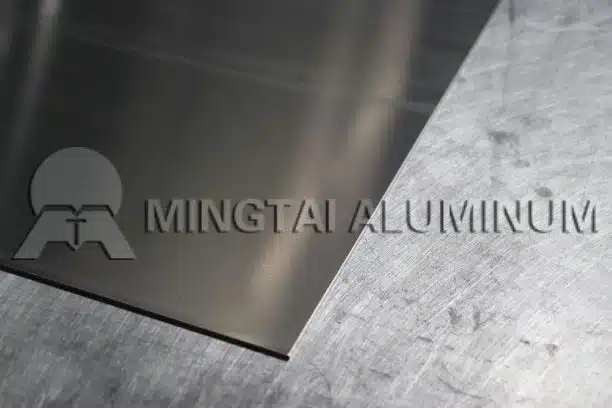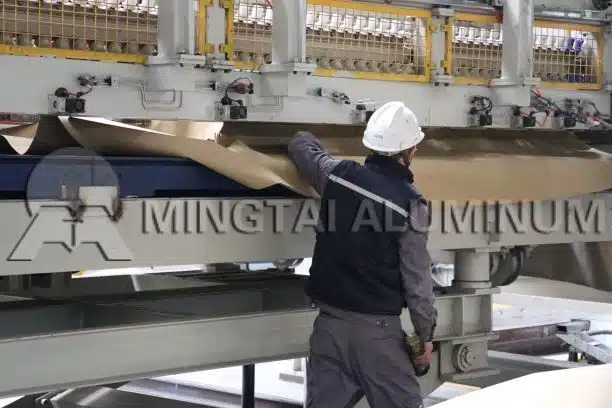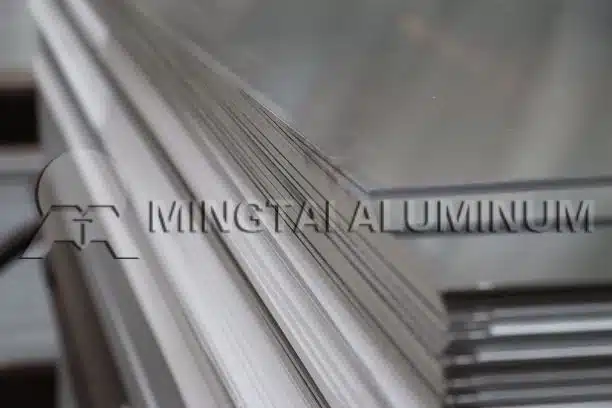Custom aluminum plates are a big deal in manufacturing. They’re strong, durable, and super flexible. You can use them in industries like aerospace, cars, and boats. You can tweak their size, type, and finish to fit your needs. This guide covers everything about custom aluminum plates—what they are, why they’re great, and how to pick the right size, alloy, and finish.

Understanding Custom Aluminum Plates
What Makes a Custom Aluminum Plate
A custom aluminum plate is a flat piece of aluminum made to your exact specs. You can choose its size, alloy, and finish. They’re cut from big sheets or shaped directly using fancy tools. This lets you control things like strength, rust resistance, and how easy it is to shape.
Where They’re Used
Custom aluminum plates pop up in tons of industries. In cars, they’re used for parts like pedals or body panels. 5052 aluminum plates for automotive pedals due to their excellent properties. In aerospace, high-strength alloys like 7075 are used for tough parts. Boats use marine-grade plates like 5083. Marine grade 5083 aluminum alloy is one of the most widely used aluminum plates in ship manufacturing. Electronics use precise plates for phone cases and internal bits.
Why Choose Custom Aluminum Plates
Custom plates are great because they're so versatile. They're strong yet lightweight. They don't rust easily. They also stand up to heat well. Plus, they're simple to work with. Choosing the right alloy matters. Getting the right finish matters too. This makes them ideal for your project. Customizing reduces waste during production. That's a big plus.
Exploring Aluminum Plate Sizes and Thicknesses
Common Sizes on the Market
Aluminum plates come in all sorts of sizes depending on the alloy and job. Thicknesses usually range from 0.5 mm to 500 mm for grades like 5052 or 6061. Thickness0.5-500mm is common for 5052 aluminum plates used in automotive applications. Widths go from 500 mm to 2800 mm based on the product. Width500-2800mm is available for 6061 aluminum plate.
Lengths can be made up to 16000 mm depending on the setup. Length500-16000mm applies to certain products like 5052 aluminum plate.
How to Pick the Right Size
What Affects Size Choice
Choosing the right size depends on a few things. Think about the weight the plate needs to hold, the space it’s going in, and how you’ll cut or weld it. Big boat parts, for example, need long plates with steady widths to stay strong.
Weight and Thickness
Thicker plates weigh more but are super sturdy. They’re great for tools or molds that need to stay solid. Thinner plates are better for lightweight stuff like phone parts or car panels, where saving weight boosts performance.
Aluminum Alloys for Plates
Popular Alloys for Plates
Certain alloys are go-to choices because of their special traits:
6061 Aluminum Alloy Features
6061 aluminum plate is one of the superior products of MINGTAI ALUMINUM, with superb processing technology. It’s got great perks like good oxidation, minimal warping after shaping, and even heat treatment. It’s used in phone cases, car wheels, molds, and precise parts.
5052 Aluminum Alloy Traits
5052 is a strong alloy that doesn’t need heat treatment. It resists rust, especially in salty sea air, and shapes easily. It’s perfect for car pedals and other tough jobs where durability matters.
7075 Aluminum Alloy Strength
MINGTAI ALUMINUM focuses on the research, developmentорий and production of 1-200mm thick 7075 aluminum plate. MINGTAI ALUMINUM 7075 medium-thick aluminum plate is applicable to shoe mold, high-strength mold, high-strength parts and other fields. It’s super strong and resists wear, so it’s common in aerospace and heavy-duty parts.
Picking the Right Alloy
- The alloy you pick depends on your project:
- For rust resistance, go with 5052 or marine-grade 5083.
- For strength, choose heat-treated alloys like 6061 or super-strong 7075.
- For easy shaping, try softer grades like 1100 pure aluminum. 1100 pure aluminum plate is industrial pure aluminum. It has high corrosion resistance, low density, good plasticity.
Shaping and Finishing Custom Plates
Cutting and Shaping Methods
Precise cutting makes sure plates hit exact sizes:
CNC Machining and Laser Cutting
CNC machining shapes plates with pinpoint accuracy, great for complex aerospace or electronic parts. Laser cutting gives clean edges with little waste. It’s perfect for thin plates or decorative panels.
Surface Finishes
Finishes make plates look better and work better:
Anodizing for Rust Protection
Anodizing makes the surface harder and way more rust-resistant. This is key for plates used outside or in wet places like boats.
Brushed and Polished Looks
Brushed finishes give a matte look that hides fingerprints. It’s great for industrial or home decor. Polished finishes are shiny like a mirror, perfect for fancy or reflective parts.

When picking a custom aluminum plate, think about size, alloy, and finish to match your project perfectly. Partnering with a solid manufacturer makes all the difference.
MINGTAI ALUMINUM can produce 6061-t6 aluminum plate, pre-stretched 6061-t651 aluminum alloy plate, 6061 ultra-flat plate. They’ve got a huge range, including grades like 5052/5754/6082 aluminum plate and even thick 7075 plates. With global shipping and original factory warranties, the products are provided with the original factory warranty. They can be exported globally, MINGTAI ALUMINUM is a reliable choice for top-quality custom aluminum plates for all kinds of industries.
FAQ
Q: How do I figure out the best thickness for my project?
A: It really hinges on what you need. Go thinner (0.5-5 mm) for light parts. Think electronics casings. Thicker plates (50 mm and up) are the way to go for heavy jobs. Like machinery bases. Chat with your supplier. They can help match the thickness to your strength and weight needs.
Q: Are custom aluminum plates okay for outdoors?
A: Absolutely! Especially if you pick rust-resistant types. Alloys like 5052 or 5083 are great. Adding a protective finish helps a lot. Anodizing is a good one. It helps them hold up against rain, sun, or salty air. Ask your supplier. See if they offer weatherproof coatings. That adds extra toughness.
Q: How long until I get my custom aluminum plates?
A: That depends. Different suppliers have different timelines. Order complexity matters too. Simple cuts might be ready in just a few days. Complex shapes or special finishes could take a week or longer. Companies like MINGTAI ALUMINUM often work fast. Just check their delivery times.




